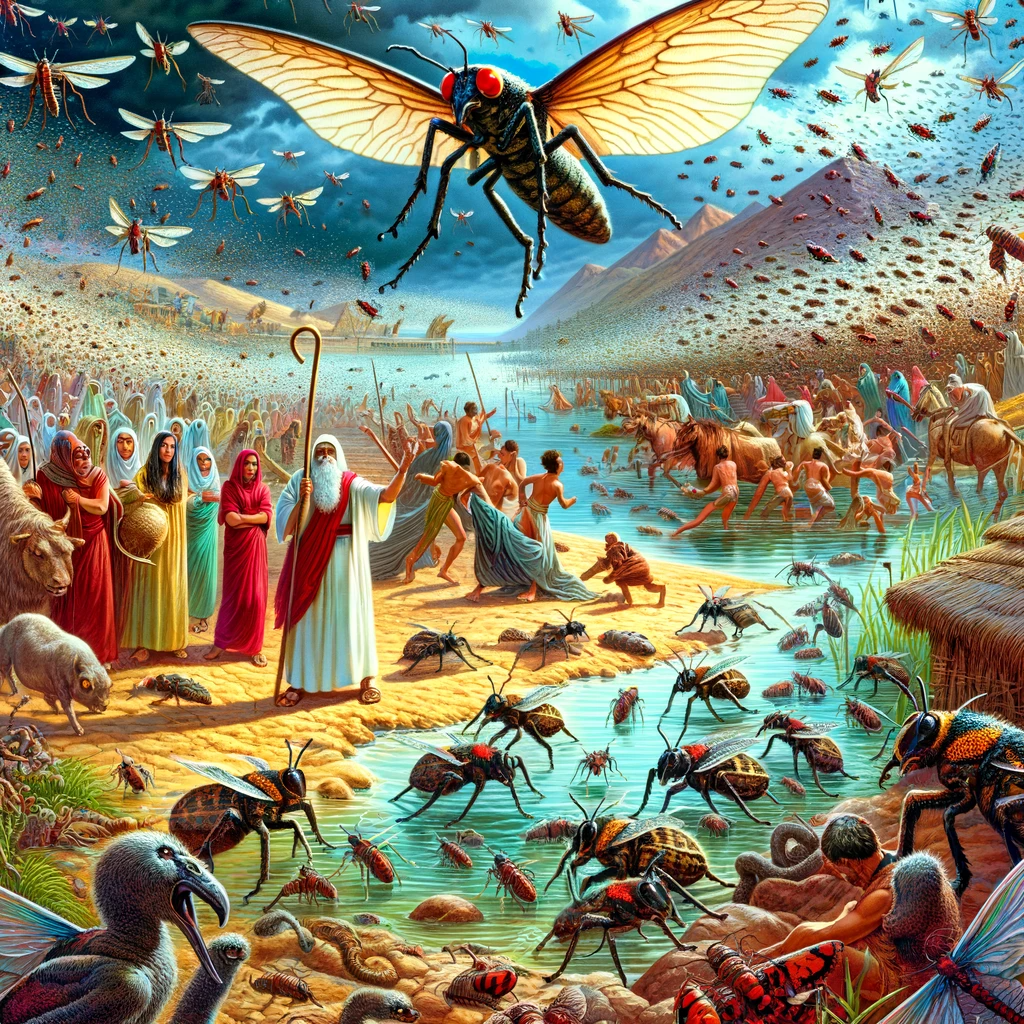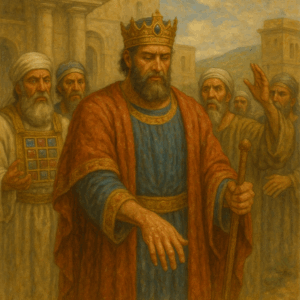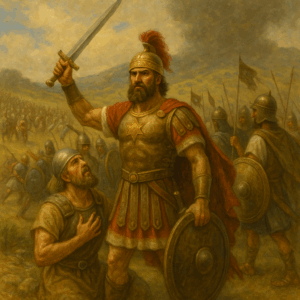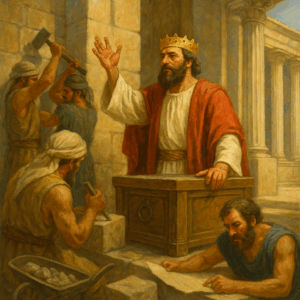Introduction:
Exodus Chapter 8 stands as a pivotal moment in the biblical saga of the Israelites’ emancipation from Egyptian bondage. This chapter vividly narrates the continuation of the plagues sent by God through Moses, each serving as a testament to His power and a challenge to Pharaoh’s stubbornness. From the plague of frogs to the invasion of gnats and flies, each event escalates the tension between the divine will and Pharaoh’s resistance.
The Plague of Frogs:
The chapter opens with the second plague – a mass infestation of frogs covering the land of Egypt. This plague, unlike the previous one, directly affects the Egyptians, creating havoc in every aspect of their daily lives. The frogs, emerging from the Nile, invade homes, bedrooms, and even kneading bowls, symbolizing a profound intrusion of chaos into order.
Pharaoh’s Momentary Yielding:
Confronted with this calamity, Pharaoh momentarily relents, promising to let the Israelites go in exchange for relief from the frogs. Moses prays to God, and the frogs die out. However, once the immediate threat is removed, Pharaoh hardens his heart again, breaking his promise and further entrenching himself in defiance.
The Plague of Gnats and Flies:
God then instructs Moses to strike the dust, which turns into gnats, afflicting people and animals alike. This sudden plague confounds even Pharaoh’s magicians, who declare, “This is the finger of God.” Yet, Pharaoh’s heart remains unmoved. Following this, the fourth plague of swarming flies descends, but this time, God differentiates between the Egyptians and the Israelites, sparing the latter, a clear sign of divine protection and favor.
Themes of Divine Judgment and Human Stubbornness:
Exodus 8 is rich in themes of divine judgment and human obstinacy. The plagues serve as both punishment for oppression and as signs of God’s sovereignty. Each plague challenges the Egyptian gods, directly attacking the elements they were believed to control. In contrast, Pharaoh’s unyielding attitude, even in the face of overwhelming evidence, highlights the folly and danger of resisting divine authority.
Modern Implications and Spiritual Reflection:
For contemporary readers, Exodus 8 offers valuable lessons in humility, obedience, and the recognition of a higher power. It challenges us to examine our own responses to divine guidance and to consider the consequences of pride and stubbornness. The narrative also encourages faith in divine justice and deliverance, even in seemingly hopeless situations.
Conclusion:
Exodus Chapter 8 is a powerful testament to the struggle between divine will and human defiance, between chaos and order, and between oppression and liberation. As we reflect on this chapter, we are reminded of the persistent battle for freedom and justice in our world and the enduring power of faith and resilience in the face of adversity. The chapter not only narrates historical events but also imparts timeless wisdom, urging us to seek alignment with divine will and to embrace the virtues of humility and obedience in our spiritual journey.






